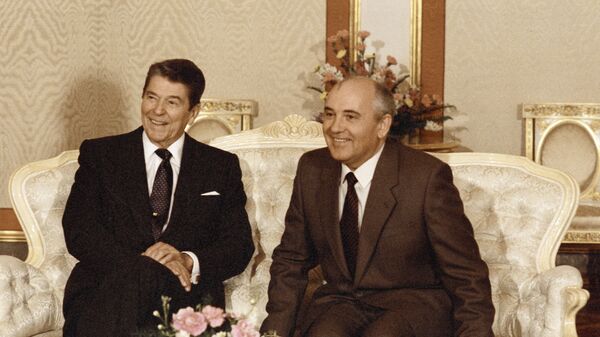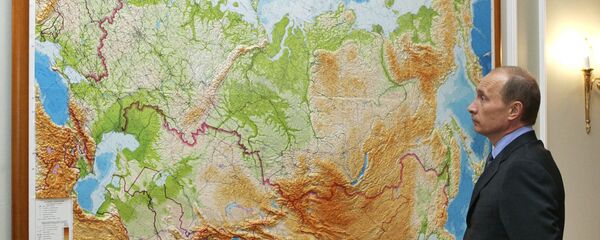US and Western European leaders repeatedly promised their Soviet and Russian counterparts in the early 1990s that NATO would not expand into Eastern Europe, according to a series of declassified documents posted by George Washington University’s National Security Archive on Tuesday.
"US Secretary of State James Baker’s famous "not one inch eastward" assurance about NATO expansion in his meeting with Soviet leader Mikhail Gorbachev on February 9, 1990, was part of a cascade of assurances about Soviet security given by Western leaders to Gorbachev and other Soviet officials throughout the process of German unification in 1990 and on into 1991," a press release summarizing the document cache stated.
NATO expansion was a key issue as US, Western European and Soviet leaders negotiated the reunification of Germany, in which the alliance’s boundaries would presumably encompass the former East Germany.
READ MORE: 'Tragic Mistake': How the Fall of the Berlin Wall Helped NATO in Eastern Europe
The cache includes a cable from the US Embassy in Bonn informing Washington that German Foreign Minister Hans-Dietrich Genscher had urged NATO to rule out an "expansion of its territory towards the east, i.e. moving it closer to the Soviet borders."
At the time, Genscher also proposed excluding East Germany from NATO's security umbrella after German reunification.
In subsequent years NATO has expanded beyond the former East Germany to include 13 Eastern European countries, the latest being Montenegro's admission in June 2017.
NATO Expansion in Europe
Russian officials, including President Vladimir Putin, have repeatedly stated that the United States failed to uphold its promises, adding that the Ukranian conflict following the 2014 coup that installed a pro-Western government in Kiev has served as a pretext for additional deployments in Europe.
Russia wants war map: pic.twitter.com/Um6LjYiAA9
— Jaap Jan de Vries (@jaapjandevries) 18 сентября 2017 г.
Most recently, NATO Secretary General Jens Stoltenberg said that the alliance would maintain increased presence in the Baltic states and Eastern Europe "as long as necessary" after the alliance's members had agreed on instituting a new adaptive command structure to improve the alliance’s ability "to improve the movement of military forces across Europe."



